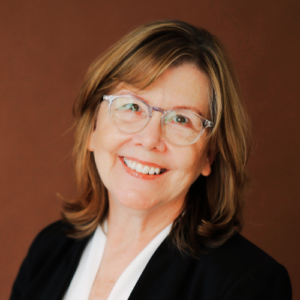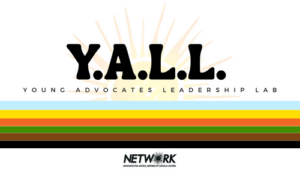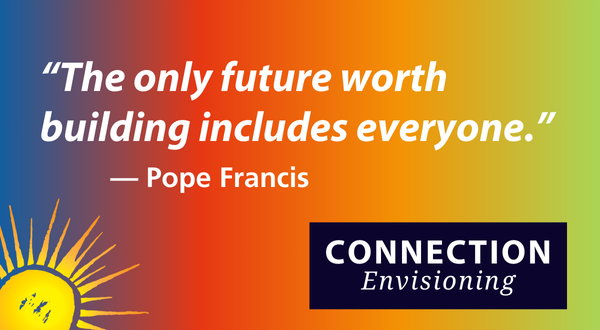
Embracing the Great ‘Y’ALL’
Justice Demands a Future—and a Politics—That Includes Everyone
Mary J. Novak
August 8, 2024

Mary J. Novak is NETWORK’s Executive Director.
James Joyce famously described the Catholic Church as “Here comes everybody!” It’s a joyfully loud and messy image for a universal people of faith making their way through history toward the kin-dom of God. At World Youth Day in Portugal last year, Pope Francis echoed this sentiment when he described the church as being for “¡todos todos todos!” — “everyone, everyone, everyone!”
At NETWORK, we embrace this inclusive vision, not only for the church but for all of society. In our voter education efforts, for instance, we call on people to “Vote our Future” to embrace a vision of a future for everyone, where all people — no matter their race, country of origin, or socioeconomic background — have what they need to flourish and participate in our society.
While the beauty of Catholic Social Teaching provides a helpful light as we navigate toward a more just and equitable tomorrow, unfortunately, not all faith leaders devote their witness to promoting these values. The message many people receive in the pews is that they need to defend themselves against cultural “threats,” usually posed by greater acceptance of the LGBTQ+ community in our society.
Sadly, some politicians stand to gain from people of faith, believing they have to defend an exclusionary worldview, whether against the LGBTQ+ community or immigrants and other marginalized people, in order to be faithful. It amounts to a brazen bet that people will do the wrong thing if it benefits them.
But not all faith leaders allow themselves to be cynically co-opted. Pope Francis, for instance, made a powerful statement about the role of faith in a complex, changing world when, on December 18 of last year, he approved a blessing for same-sex couples. While many noted that this did not change Catholic teaching on marriage and sexuality, the point is that the pope modeled how to engage in affirmative acceptance and inclusion, rooted in human dignity, rather than treating human beings as threats.
This is especially urgent in the U.S., where the dominant position of the church has been to rebuff every legal protection for LGBTQ+ people as a threat to religious freedom. So much action on behalf of solidarity and the common good could be unleashed in the world if people of faith no longer feared for their identity or saw themselves as culturally under siege.
 A group that understands this on a very deep level is young adults. While many have given up on the church because they see its teachings as endorsing intolerance, others have stayed and connected the dots of care for creation, care for immigrants, care for the whole human family, and the witness of faith. And so NETWORK, seeking to support and grow this energy, has engaged a cohort of college students this year to participate in our new Young Advocates Leadership Lab — or Y.A.L.L.
A group that understands this on a very deep level is young adults. While many have given up on the church because they see its teachings as endorsing intolerance, others have stayed and connected the dots of care for creation, care for immigrants, care for the whole human family, and the witness of faith. And so NETWORK, seeking to support and grow this energy, has engaged a cohort of college students this year to participate in our new Young Advocates Leadership Lab — or Y.A.L.L.
Like “Here comes everybody” and “¡todos todos todos!” Y.A.L.L. promotes an inclusive vision of faith at work in the public square. Y.A.L.L. leaders will engage in peer civic education on their campuses through activities such as voter registration drives and deep canvassing. These young leaders will also collaborate on NETWORK’s social media outreach to young Catholics. In an election year that has already proven so volatile, these young leaders are rays of hope for the future of U.S. democracy — and for the role of faith in preserving it.
Whether we worship in San Francisco, Detroit, or the Rio Grande Valley, Catholics have everything to lose if we silence our moral witness and buy into appeals to fear and scapegoating at the expense of solidarity and democracy. The foundation of a multi-racial, multi-ethnic, multi-cultural, pluralistic democratic society should be an appreciation for how all people are interconnected, with our well-being and fates intertwined. In this challenging moment in history, people of faith have an opportunity to draw on these values and build our society anew.







